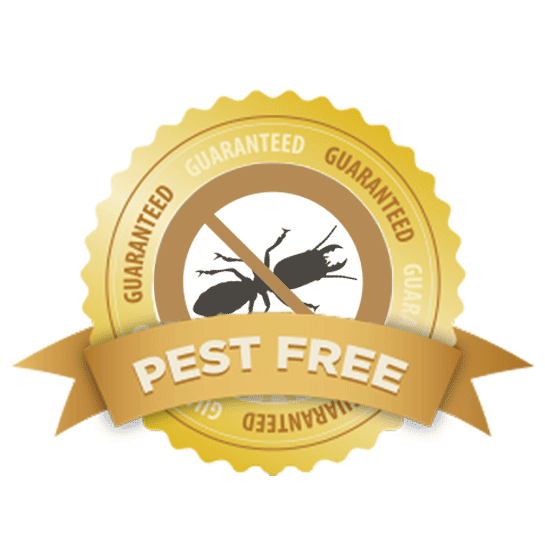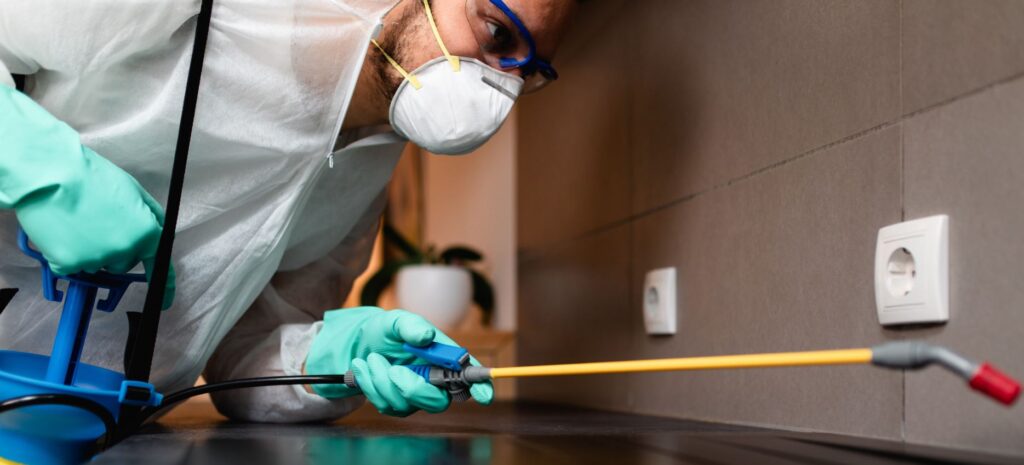Safe and Dependable Pest Control for Lasting Protection
Reliable insect management needs a diverse approach that stabilizes environmental integrity with the demand for reliable parasite reductions. The subtleties of these methods might not be right away clear, prompting a more detailed assessment of the practices that can lead to lasting insect control outcomes.
Recognizing Pest Control Methods
Pest control includes a selection of approaches targeted at managing and getting rid of undesirable insects and rodents that can threaten both health and property. Comprehending these methods is important for effective insect management.
The primary categories of pest control methods consist of mechanical, organic, and chemical approaches. Mechanical methods include physical obstacles and catches to stop bug entry and capture unwanted varieties. For example, using screens on home windows or employing sticky traps can considerably decrease parasite populations without introducing harmful materials.

Chemical bug control is frequently one of the most identified approach, making use of pesticides to remove bugs. These chemicals can be reliable yet should be made use of with caution to stay clear of unfavorable effects on non-target species and the environment.
Advantages of Eco-Friendly Solutions
Exactly how can environmentally friendly solutions change parasite control practices? The fostering of environment-friendly parasite control methods supplies countless benefits, considerably boosting the efficiency and security of pest monitoring (exterminator coquitlam). These remedies use natural components, minimizing the reliance on dangerous chemicals that can position risks to human health and wellness and the atmosphere. This change not just protects pets and households yet likewise decreases the capacity for dirt and water contamination.

Another advantage is the positive effect on neighborhood biodiversity. Environment-friendly services are made to target specific bugs while preserving valuable insects and wild animals, advertising a well balanced ecological community. This approach lines up with the growing customer demand for lasting techniques, improving the online reputation of pest control suppliers.
Integrated Pest Monitoring Strategies
The execution of environmentally friendly solutions normally causes the fostering of Integrated Parasite Administration (IPM) approaches, which better boost insect control efficiency. IPM is an all natural method that incorporates multiple tactics to take care of bug populations while minimizing ecological effect. This approach emphasizes the use of biological, cultural, mechanical, and chemical controls, making sure a balanced and sustainable technique of parasite monitoring.
One fundamental aspect of IPM is the thorough evaluation of insect activity and environmental conditions. By keeping track of parasite populaces and recognizing their life process, specialists can execute targeted interventions that disrupt the insect's habitat or lifecycle, decreasing reliance on chemical pesticides. In addition, social practices such as plant turning and environment adjustment can considerably diminish pest facility and important link reproduction.
An additional critical part is making use of organic control representatives, such as valuable bugs or microbes, which can naturally subdue parasite populations. When chemical applications are necessary, IPM focuses on the use of low-risk pesticides and applies them uniquely, reducing direct exposure to non-target microorganisms and human beings.
Including IPM approaches not only boosts insect control performance but additionally advertises a safer community, aligning with the growing demand for sustainable techniques in parasite monitoring.
Safe Practices for Home Owners
Recognizing the value of safe practices in insect control can empower home owners to effectively take care of pest concerns while protecting their health and wellness and the environment. Executing preventive steps and non-toxic techniques is crucial in decreasing exposure to hazardous chemicals.
Homeowners must initially analyze their environment for conditions that draw in insects, such as standing food, mess, and water waste. Regularly cleaning and securing entrance factors can prevent bugs from getting into the home. Making use of natural deterrents, such as necessary oils or diatomaceous planet, can give reliable alternatives to chemical pesticides.
When chemical treatments are essential, homeowners should go with products that are especially classified as risk-free for residential usage. It is important to adhere to application guidelines meticulously to prevent too much exposure. Moreover, making use of targeted therapies in areas where bugs are identified, instead than covering spraying, can considerably minimize chemical use.
Finally, maintaining open interaction with pest control professionals is important. House owners should ask about the safety and security of products made use of and request environment-friendly options whenever feasible. By adopting these browse around this site safe practices, home owners can produce a much healthier living setting while properly managing insect concerns.

Tips for Long-Term Defense
Developing a parasite administration approach that highlights long-term security can significantly enhance the performance of the secure techniques formerly talked about. To achieve this, property owners should execute routine assessments of their property, concentrating on concealed areas such as attic rooms, basements, and crawl rooms. Early detection of insect activity is crucial in stopping invasions from holding.
These practices lower attractants that draw bugs into the home. Sealing access factors, such as splits around doors and windows, can successfully block possible insect gain access to.
Landscape design needs to also be thought about; maintaining plants trimmed and preserving a range in between vegetation and the home minimizes hiding spots for bugs. Making use of natural deterrents, such as vital oils or diatomaceous planet, can further discourage infestations without turning to severe chemicals.
Lastly, collaborating with a specialist bug control service for periodic assessments can give an added layer of security. These professionals can offer customized recommendations and advanced treatments, ensuring that your home continues to be safeguarded versus pests in the lengthy term.
Verdict
Finally, secure and reputable pest control calls for a diverse technique that highlights environmentally friendly methods and integrated parasite administration. By implementing all-natural deterrents, conducting normal assessments, and preserving appropriate hygiene, home owners can dramatically lower pest populaces while safeguarding advantageous insects and the setting. Cooperation with expert insect control solutions enhances the effectiveness of these strategies, making sure customized solutions that offer long-term protection and satisfaction versus future infestations.
Effective insect management calls for a diverse approach that balances ecological integrity with the need for effective insect reductions. The adoption of eco-friendly bug control approaches provides many benefits, considerably boosting the effectiveness and safety and security of pest management.The execution of green options naturally leads to the fostering of Integrated Insect Monitoring (IPM) approaches, which better boost pest control effectiveness. exterminator coquitlam. By checking insect populations and identifying their life cycles, professionals can execute targeted treatments that interfere with the insect's habitat or lifecycle, lowering dependence on chemical pesticides.In conclusion, safe and reputable insect control calls for a diverse like this method that stresses green approaches and integrated pest management